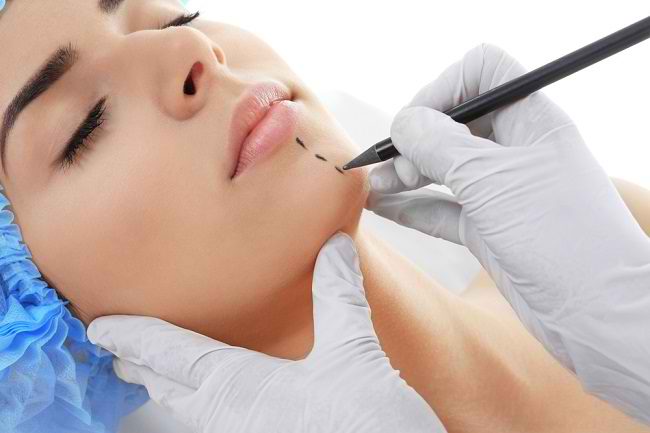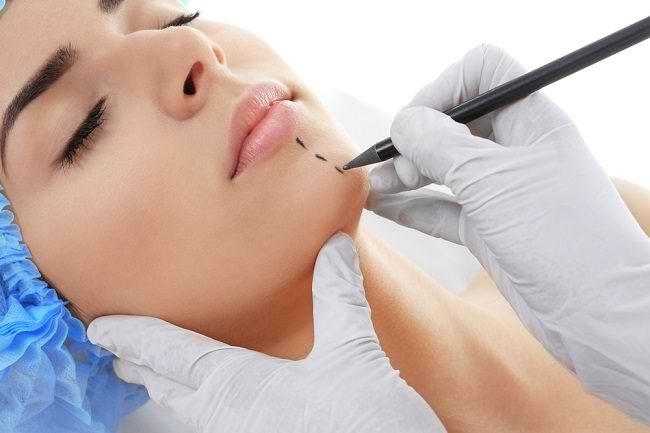Plastic surgery is performed to repair or change certain body parts. However, just like any other surgery, this procedure also has risks. Therefore, it is important for you to know a few things about plastic surgery before undergoing it.
Plastic surgery is generally performed to repair or reconstruct skin, muscle, and connective tissue damaged by certain injuries, injuries, or diseases. The goal of plastic surgery is to restore tissue and skin function to function normally again.

In addition to repairing damaged areas of the body, plastic surgery can also be done for aesthetic or beauty reasons. Aesthetic plastic surgery is generally done to change the face or body to make it look more attractive.
Some Plastic Surgery in the Field of Beauty
The following are some types of plastic surgery that are commonly performed to improve or change the shape of the face and body structure:
nose surgery
Nose surgery is one of the most common types of plastic surgery performed. This surgery can be done to correct the shape of the nose, for example a nose that looks too big, flat, or crooked. This surgery can also be done to correct the shape of the nose damaged by the injury.
Nose surgery to change a new appearance can be done when a person has reached the age of teenagers or around 16 years. In addition, this surgery may not be recommended for people who often do strenuous exercise.
Eyelid surgery
Plastic surgery for the eyelids is done to overcome problems ranging from drooping eyelids to removing eye bags. In addition, this type of plastic surgery can also be performed to remove excess skin and fat, and make the eyelids firmer and smoother.
In addition to aesthetic reasons, eyelid surgery can also be performed to treat certain eye conditions, such as entropion.
Lip surgery
Plastic surgery on the lips aims to make the lips fuller or thicker. This operation is done by placing an implant in the lip. In addition to surgery, doctors can also beautify the shape of the lips in other ways, such as injecting certain substances.
Some of the ingredients or substances that are often used to beautify the shape of the lips are fat and fat fillerfor example hyaluronic acid.
Lip surgery may not be suitable for people who have allergies or certain diseases, such as diabetes, herpes, and autoimmune diseases, including lupus and rheumatoid arthritis.
Cheek implant
The tissues on the face can become thinner and less firm with age. Plastic surgery in the form of cheek implants can be done to add volume to the cheek area and give a more youthful appearance.
Cheek implants can also be done to make the face look more natural after reconstructive surgery, for example in surgery to repair facial damage due to injury or cancer.
However, this plastic surgery technique is not suitable for people whose facial skin is too loose. As an alternative, the doctor may be able to do facelift or facial retraction surgery.
Forehead lift surgery
Forehead lift surgery is done by pulling the skin on the forehead to make it look firmer and removing wrinkles and fine folds on the forehead. The goal of this plastic surgery is to improve the structure of the drooping eyebrows and eliminate wrinkles on the forehead.
Face pulling surgery
Facial pull plastic surgery or facelift aims to tighten the face and remove wrinkles or wrinkles on the face. This operation is generally performed by those who are elderly, have sagging facial and neck skin, or have excess fat on the chin.
The aim of this surgery is to tighten sagging skin as well as to make it look more youthful. This operation is not recommended for people who do not have elastic skin and obese people.
In addition to the various types of surgery above, there are still many types of plastic surgery that are also quite commonly performed, such as breast plastic surgery, breast implants, vaginal surgery, buttocks augmentation surgery, and chin surgery.
Tips After Undergoing Plastic Surgery
After undergoing plastic surgery, you are advised to undergo treatment and follow the things recommended by the doctor so that the recovery process takes place quickly and smoothly.
The following are things you should do after undergoing plastic surgery:
1. Avoid wearing makeup
You are advised not to use makeup or make up at least 3 days after undergoing plastic surgery. However, you should still keep your skin hydrated and clean by using a facial cleanser that doesn’t contain irritating chemicals or fragrances.
2. Use sunscreen
Exposure to direct sunlight or ultraviolet (UV) light after plastic surgery can damage and discolor the skin. If you are forced to have activities outside the house, use a sunscreen that has an SPF of at least 30.
3. Let the wound heal by itself
The plastic surgery that you undergo may leave some scars on the face. You are advised to let the wound dry and heal by itself.
During the recovery process, avoid touching or squeezing the wound as this can cause infection which can hinder the healing process and damage the skin.
4. Adequate intake of nutrients and body fluids
During postoperative recovery, the body needs sufficient energy and nutrients. Therefore, consume nutritious foods that are rich in protein, carbohydrates, vitamins, and minerals.
In addition, you also need to meet your body’s fluid intake by drinking at least 8 glasses of water per day. Adequate fluid intake is important to prevent dehydration and keep skin supple and elastic.
5. Use facial moisturizer
You are advised to use a moisturizer after plastic surgery. The function of this moisturizer is to keep facial skin soft and not dry. Make sure to use a moisturizing facial product that doesn’t clog pores.
Important Plastic Surgery Risks and Complications to Know
Just like surgery in general, plastic surgery also carries risks and can cause certain complications. The following are various risks and complications that can occur after you have plastic surgery:
- Bleeding and bruising
- Infection
- Tingling or numbness
- Implants leak or shift, for example in cheek, chin, or breast implant surgery
- Loss of hair and numbness around the operated area, eg forehead
Although rare, eyelid surgery can also cause dry eyes, eye irritation, scar tissue, and even blindness. In certain cases, plastic surgery may fail or not give the expected effect.
Therefore, before deciding to undergo plastic surgery, you need to seek as much information as possible from the doctor. Also ask the doctor about the purpose of the operation, the chances of success, and the operating costs that need to be incurred.
In addition, the results of plastic surgery on each person can be different. If you still have questions or are planning to have plastic surgery, you can consult a doctor.











